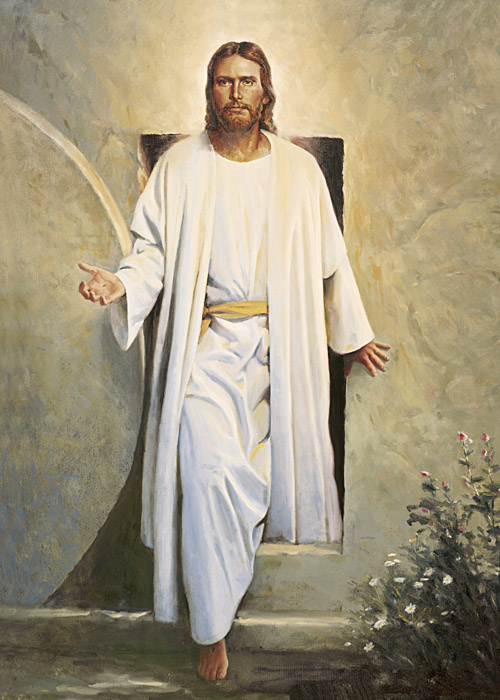I’ve noticed a transformation within myself in the last couple months. It’s the kind of transformation that takes a proper Ignatian sense of awareness and reflection. I told my wife and my spiritual director, “I feel more Christian than I ever have.”
Perhaps it’s the fact that every day I am teaching high school students about God and how God relates to their lives. Perhaps it’s that I’m meeting new people who open my eyes more to what faith really means. Perhaps it’s an increase in opportunities to be Christ-like. Or perhaps it’s my new understanding of the reality of evil I mentioned in my last post. What I realised is that it’s all of these things. Since my wife and I have found ourselves in a whirlwind of ministry and responsibilities we realised we needed to sit down and let the winds calm so we could assess how God was being present to us.
The past couple months have taught me that my growth in my “Christianness” has been because of three things: Claiming what I believe, witnessing people of faith, and having the opportunity to put my faith into action.
 Claiming what I believe
Claiming what I believe
I nearly called this section “knowledge” because it first seemed to be the act of studying about my Catholic faith and tradition in order to teach it to my students that caused me to feel more Christian. What it was however, was that I soon realised I had to believe what I taught. This didn’t mean that I never found challenge with certain aspects of the faith, but that I showed my students that I loved being Catholic, that I truly believed Jesus died and rose for us, and that I tried to live what I believe.
Having come from an academic bubble of theology grad school I was filled with knowledge and nuance and “buts”. It was easy to tell students that yes, the scriptures are inspired by God but flawed humans from a particular cultural context wrote them over the period of centuries. These historical and theological realities I learned in grad school were interesting to me but I found myself softening the gravity of the Bible. I had to remind students that it was God’s Word and I believed it. Despite my expectations, many of my students seemed to find Christian theology relevant to them. They’d ask me questions about what happens to our body after we die or share about hardship in their life. They’d seem to really believe in the divinity of Christ and in the Resurrection. Yes, I did, too, but I never really claimed those beliefs. I let my intellectual examination of them prevent me from claiming them and speaking about them with conviction.
Is there something stopping you from claiming a childlike faith?
 Witnessing people of faith
Witnessing people of faith
The academic bubble was great while it lasted, but I had a reality check when I stepped out of that bubble into the world of diverse ministry. The sheltered structures I had been a part of before were no longer over me. The people of the church are not cordoned into one bloc or one ideology. I have come to meet and know others who are extremely faithful people; others who, while they may be at a different place on the ideological spectrum than I am, truly trust and believe in a Living God.
We may have a deep faith, but we can go about our lives pretending we don’t fully need God. Or we publicly present ourselves as culturally Catholic but never let the deeper faith show. I may not agree with every person on every issue, but if they wear their belief on their sleeve, I cannot dismiss them. It’s those people who inspire me to be more Christian, to live what Jesuits call the magis. Those people call me to claim my identity as a Christian and not to hide it. They’ll know we are Christians by our love, right? When I meet a person on fire for their faith, and always looking to cultivate it, I take them seriously. And I notice that when I take my faith seriously and people see it, they take me seriously.
Who are the people of deep faith around you who inspire you to take your faith seriously?
Opportunity to put faith into action
This is where claiming what I believe and my witness of others bears fruit. The Jesuit ideal of being a contemplative in action, for me, means that my reflection and realisation of my growth in my “Christianness” leads to applying it to everyday life. Faith without works is dead, as James says in the Bible. Lately, God has provided me with so many opportunities to put my Christianity into action.
My wife Sarah and I have been noticing how people have approached each of us for spiritual counsel. People see in us that lived faith, I told her. They see at least a glimpse of what I’ve seen in those people of deep faith I’ve encountered. “We cannot deny our ministerial gifts,” I told her. But not just that: We cannot deny that it’s our call to live out what we claim to believe.
We’ve come to know a young person who has struggled with finding a job, lacks community supports, and found herself homeless for a few weeks. One day we found her sleeping outside because the local shelter didn’t have a space available for a few days. “What should we do?” Sarah asked me. We both decided it was prudent not to invite her to sleep in the Newman Center, but we didn’t want her sleeping on the street. “Should we get her a motel room?” Sarah asked. “I don’t know,” I responded. I really didn’t know. So I paused for a quick discernment. “God, what should we do?” I remembered how I’d been teaching my students about the corporal and spiritual works of mercy, how Jesus said we would be judged on how we cared for the most vulnerable. Shelter the homeless. It was one of the corporal works of mercy and the opportunity for it was staring us in the face. “We have to do it,” I told Sarah and we booked a room for our neighbour. She was our neighbour, the one Christ called us to love as ourselves.
This opportunity to put our faith into action really sat with us a while. That evening I said to Sarah, “You know, we gave shelter to Jesus tonight.” A few days later we read a passage from the Letter of James that says you do well to follow the law “Love your neighbour as yourself.” “But if you show partiality, you commit sin,” it says. Choosing not to respond to those opportunities to care for those in need is sin. It was an insight I realised I needed to take more seriously.
…
And of course there was the time Sarah and I felt the presence of evil in our home and our new claim on Christianity caused us to turn to the tools of our church and tradition to reach out to God and receive comfort.
Where are those daily opportunities to put your Christian faith into concrete action?
The Christian life is more than a list of tenets and doctrines. It’s a way of life. It’s about a Living God who touches us through Scripture, a living and breathing Tradition, and through our everyday circumstances. To borrow some words from St Paul, our Christian way of life does not boast or seek reward. It is not arrogant. “It is not irritable or resentful; it does not rejoice in wrongdoing, but rejoices in the truth. It bears all things, believes all things, hopes all things, endures all things.” It finds joy in caring for others. Our Christian faith is love, which Ignatius says, is shown better in deeds than in words.
Related posts:
- Being Christian: Unfolding the Kingdom of God
- Being Christian: A Christian Disposition
- Being Christian: A Way of Life
Listen to an audio version of this post…
Music by Kevin MacLeod










Wow! Thank you for sharing this Andy.I have taken your three questions into my journal with the last paragraph of your blog written in capital letters. Two points: choosing not to respond is much the easier course to take. It is something I find needs my constant attention. So far as people of deep faith inspiring me to take my faith seriously you have certainly helped me along the way – which must be God’s doing. Thanks Andy